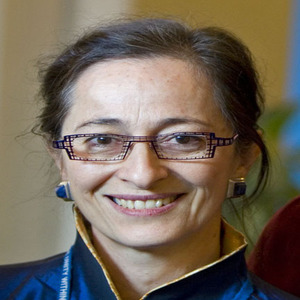Elsa Stamatopoulou joined Columbia University in 2011 after a 31-year service at the United Nations (in Vienna, Geneva and New York) with some 22 years dedicated to human rights, in addition to 8 years exclusively devoted to Indigenous Peoples’ rights. Indigenous issues were part of her portfolio since 1983 and she became the first Chief of the Secretariat of the United Nations Permanent Forum on Indigenous Issues in 2003. In 2011, she taught the first-ever course at Columbia on Indigenous Peoples’ rights, in 2016, the first course on cultural rights and is the first Director of the Indigenous Peoples Rights Program at the Institute for the Study of Human Rights at Columbia. She is also co-founder and was co-chair of Columbia’s University Seminar on Indigenous Studies from its inception in 2014 to 2020.

Elsa Stamatopoulou joined Columbia University in 2011 after a 31-year service at the United Nations (in Vienna, Geneva and New York) with some 22 years dedicated to human rights, in addition to 8 years exclusively devoted to Indigenous Peoples’ rights. Indigenous issues were part of her portfolio since 1983 and she became the first Chief of the Secretariat of the United Nations Permanent Forum on Indigenous Issues in 2003. In 2011, she taught the first-ever course at Columbia on Indigenous Peoples’ rights, in 2016, the first course on cultural rights and is the first Director of the Indigenous Peoples Rights Program at the Institute for the Study of Human Rights at Columbia. She is also co-founder and was co-chair of Columbia’s University Seminar on Indigenous Studies from its inception in 2014 to 2020.

